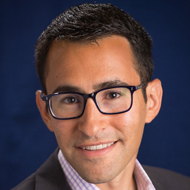Why Millennials Should Get Used to Work-Life Imbalance
The same technology enabling us to connect with people and get work done faster than ever before is also making for never-ending work days. Years ago, professionals had the luxury of confining their day’s work to an eight-hour chunk of time. After 5 p.m., they could focus on personal activities -- it was time to go home to dinner or out to a movie, uninterrupted. Today, work’s demands are becoming more similar to parenting, in that they never truly “turn off.” If you only work eight set hours, you’ll fall behind, look like a slacker, or both.
One study found that 81% of U.S. employees check their work mail outside of work hours, including 55% who peek at their inboxes after 11 p.m. at night. While many professionals are now "on call" throughout the day, the expectations placed on millennials are especially high. As the first generation of digital natives, millennials are naturally gifted at managing this always-on lifestyle—and in some ways they prefer it, because of the work time flexibility it theoretically affords them—but at the same time they fear it is hurting their personal lives.
To examine how technology and millennials are affecting the modern-day workplace (and vice-versa), my company and Elance-oDesk.com commissioned a study released today called "The 2015 Millennial Majority Workforce." In it, we found that nine out of ten millennials say that they can access information whenever and wherever they are, and that 73% are expected to be contactable at any time of day or night.
We also surveyed HR managers and found that, somewhat unsurprisingly, 82% said millennials are more technology adept than older generations. Because millennials use social media more than all other generations, they are the ones who are most pressured to manage a complete blending of their personal and professional lives. Millennials naturally feel like they have to respond to emails outside of the office in order to keep up with the demands of their jobs.
These expectations aren't all bad, so long as they come with tradeoffs. Millennials tend to seek flexible work schedules so that they can deliver value to their employers whenever duty calls, while at the same time flex schedules hopefully give them time to fit in personal activities they enjoy. They seek companies that will enable them to work remotely so they can blend personal activities during the day, not just during the night or on weekends. This push for work flexibility and integration creates opportunities for impact and learning, both of which millennials want.
While millennials want flexible work hours so they can have fun even though they are always "on call," the obvious downside is that they can never truly be away from work. As millennials grow older, and have more responsibilities like raising children, they're learning that life can get increasingly complicated and overwhelming when the needs of their blurred personal and professional lives collide.
To cope, millennials must take matters into their own hands in the same way that entrepreneurs or freelancers do. They need to make a list of all of their work responsibilities and all the personal activities that they want or need to accomplish, and then focus on those each day. This way, it's less about when, and where, they complete their work or personal activities and more that they actually complete them.
What's more, professionals today need to get out of the mindset that they can have balance in an unbalanced world and seek to integrate their personal and professional interests so they are more fulfilled. At companies like Virgin and Netflix, workers get unlimited vacation days not just as a reward to them but to take into account that everyone is busy and needs time off. This open policy enables workers to take random breaks throughout the year when they need it most, yet it also exploits the fact that employees are still thinking about work on vacation.
Research from The White House proves that roughly half of companies offer full-time employees flexible work hours. Companies like Yahoo!, Best Buy and Reddit aren't embracing flex hours because having employees who worked remotely didn't work for them in the past. Instead of allowing for some flexibility, they decided completely against it, forcing all workers to be at the office each day. Of course, millennials, who desire to work remotely, are less inclined to work at these types of companies because they don't support their personal life and work styles.
Technology today means that work no longer needs to be a place. The vast majority of what we do can be done from anywhere. However, many companies still don’t embrace flexible work. This outdated approach lends to millennials choosing alternate career paths -- many would choose freelancing, for example. Our study found that 79% of millennials would consider "quitting their regular job" and "working for themselves" in the future, and 82% of millennials believe that technology has made it easier to start a business.
Regardless of what career path millennials pursue, the demands of work today and in the future mean it's essential to get better at managing your day. Take time to consider personal and professionals goals on a daily basis. Figure out how to prioritize throughout your day, and forget about true work-life balance: Those days are over. But take heart that infinite work days bring with them infinite possibilities that weren’t there when we were locked behind a desk 9 to 5.
Dan Schawbel is a workplace expert, keynote speaker and the New York Times bestselling author of Promote Yourself: The New Rules For Career Success and Me 2.0.
